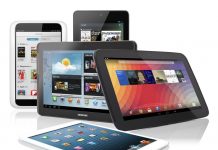 E-readers and tablets have changed the way we read.
E-readers and tablets have changed the way we read.
It’s a simple statement, one that is surely to be true. But the question that needs to be asked is ‘how.’
USA Today and Bookish have attempted to answer that question by conducting a survey of 1,000 people across the United States. They also added a supplemental poll with 819 e-reader and tablet owners.
The biggest change showed 40 percent of those surveyed say they own a tablet or e-reader, which is up from 18 percent in a 2011 Pew poll, according to USA Today. Of those, 35 percent report reading more books over the course of a year. Adults who have a reading device say they read an average of 18 books a year compared to those without who say they read an average of 11.
Anyone with a device can see how these statistics could be true. Personally, the amount of books I read in a year is up but using a combination of reading devices and physical books.
The biggest reason for my uptick is accessibility. If I hear about a book, all I need to do is go to my tablet, click on one of the reading apps and buy or borrow the book.
Before the device, I would have to buy the book at a bookstore or online, or borrow the book from the library. This would sometimes take days to get the book in hand rather than the minutes it takes now.
Another interesting point of the poll was how people share what they read. Twenty-seven percent have shared opinions online through social media or book recommendation websites such as Bookish, but it jumps to 50 percent in the under 40 crowd (guilty!).
However, the poll doesn’t tell you how many people have said they read less or the same since owning a reading device. Since 35 percent say they read more, the majority either read less or the same amount of books as before. It would only be fair to compare the statistics across the spectrum rather than only showing the positive aspects of the data.
A complete set of data for this poll would be much better for analysis. So instead of knowing how reading devices have changes for all of those polled, we know about only about one-third of them.
There was a provisional question of “What keeps you from reading more books?” Fifty-one percent said time was a major factor while 16 percent say lack of interest in reading and 14 percent say a lack of quality books.
However, it doesn’t mention if these were the group of people who read more, the same or less books than before.
The survey was conducted in mid-August.
You can find more information on the USA Today website here and here.

































The fact this isn’t obvious is just puzzling to me. GPS increased the time spent with mapping over finite paper atlases. Facebook and smartphones increased the number of photos taken and shared and enjoyed. YouTube increased the number of movies we see. Twitter increased the number of news stories we read. iTunes increased the number of songs we listen to. The networking of humanity made possible by technology is the main event of our lifetimes and is a good thing. Be happy. Read more. Forward.